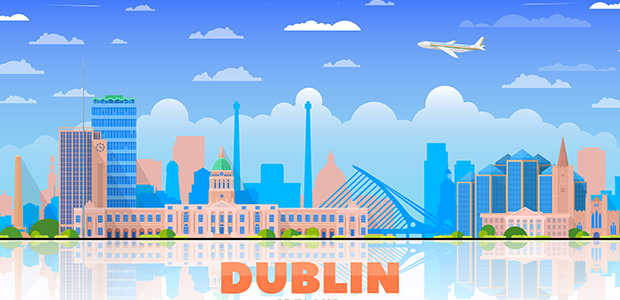
Dublin plummets in startup city ranking
Dublin has plummeted out of the top 10 startup cities ranking in Europe, according to StartupBlink’s Global Startup Ecosystem Index 2023.
According to the Index, Dublin now ranks 11th in Europe, having dropped two places has now been displaced by Madrid. Globally, Dublin now sits at 51st in the world, dropping five positions since last year. In the whole of Europe, Dublin takes the 11th spot with a total score of 12.93.
In comparison, London is the highest-ranking city in Europe, and the third in the world, according to the report, and managed to score a total of more than 127. San Francisco and New York came first and second place globally, while Los Angeles and Boston came in at fourth and fifth.
Helsinki ascended five positions in the global rankings from 2022, surpassing Dublin to claim the ninth spot in Europe, with Madrid following closely at the tenth position. Nevertheless, within the EU rankings, Dublin retains its strong presence, firmly holding onto ninth place.
The algorithm to determine these figures has been determined by objective, quantifiable data that is able to be measured across regions, countries, and cities. The report defines a startup as “any business that applies an innovative technology-enabled solution that has the potential to achieve scalability.” In this definition, StartupBlink does not consider founding year or team size as criteria in determining a startup. Each ecosystem has a total score, which is the sum of 3 subscores measuring quantity, quality, and business environment, these are quantity, quality and startup business environment.
-
Quantity: The core question is how many? A robust startup ecosystem includes much more than startups: it must have supporting organisations that provide resources, networking, and access to capital. The quantity score ranks the activity level of an ecosystem by assessing these stakeholders and other key players, including: number of startups, investors, coworking spaces, accelerators, and startup-related meetups.
- Quality: StartupBlink uses numerous integrations with partners to analyse the qualitative results. Among the elements taken into account for the calculation of the quality score in each startup ecosystem are, but not limited to: total accumulated private sector startup investments, total accumulated number of startup sector employees, number and size of unicorns and exits above $1 billion, the traction of startups in each ecosystem, and number of statups accepted by top global accelerators.
- The third and final factor affecting the rankings is unique since it focuses on general indicators connected to infrastructure, business environment, ecosystem critical mass, and the ability to freely operate as a startup in the country. Some of the elements that are taken into account are: diversity index, internet speed, R&D investment, availability of startup visas, and availability of various technological services.
According to IDA Ireland, the nation boasts the highest per capita number of STEM graduates among individuals aged 20 to 29 within the EU. Furthermore, a substantial proportion of individuals aged 23 to 34 have successfully completed third-level education. This, in conjunction with a favourable tax policy incentivising major players such as Google and Facebook to establish their international headquarters within the country, establishes a solid foundation for a global hub.
However, the presence of prominent American corporations, while beneficial for the economy, presents a challenge for the startup ecosystem. This is because many potential entrepreneurs are faced with the enticing alternative of securing well-paid jobs within established companies instead of following the uncertain path of entrepreneurship.
Ireland’s potential has yet to be fully realised, and many talented Irish founders still choose to relocate or establish their startups in more prominent ecosystems. Although, there are some notable startups that have been founded, and remain headquartered in Dublin, including BrowserStack, Wayflyer, and Flipdish

